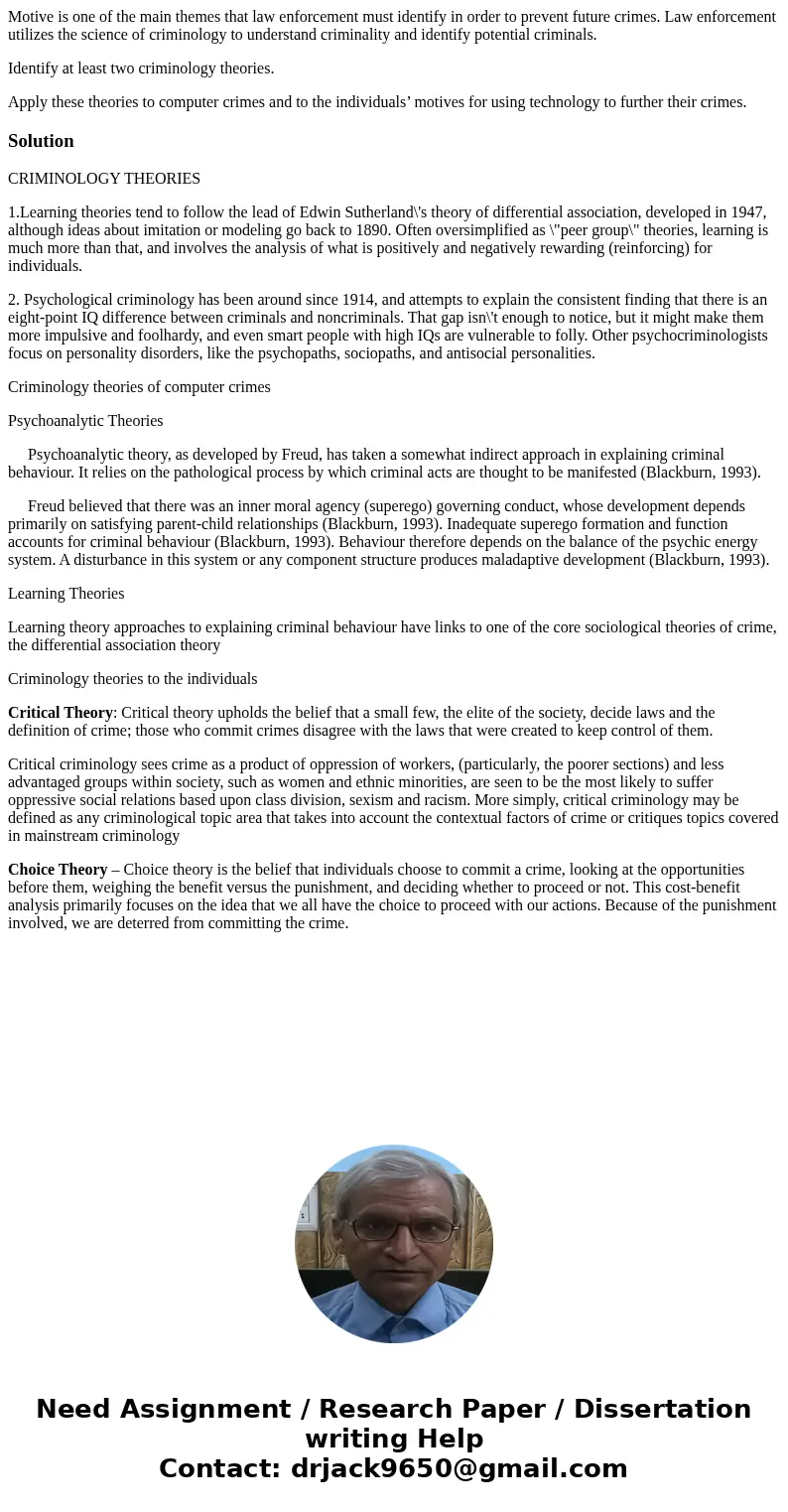Motive is one of the main themes that law enforcement must i
Motive is one of the main themes that law enforcement must identify in order to prevent future crimes. Law enforcement utilizes the science of criminology to understand criminality and identify potential criminals.
Identify at least two criminology theories.
Apply these theories to computer crimes and to the individuals’ motives for using technology to further their crimes.
Solution
CRIMINOLOGY THEORIES
1.Learning theories tend to follow the lead of Edwin Sutherland\'s theory of differential association, developed in 1947, although ideas about imitation or modeling go back to 1890. Often oversimplified as \"peer group\" theories, learning is much more than that, and involves the analysis of what is positively and negatively rewarding (reinforcing) for individuals.
2. Psychological criminology has been around since 1914, and attempts to explain the consistent finding that there is an eight-point IQ difference between criminals and noncriminals. That gap isn\'t enough to notice, but it might make them more impulsive and foolhardy, and even smart people with high IQs are vulnerable to folly. Other psychocriminologists focus on personality disorders, like the psychopaths, sociopaths, and antisocial personalities.
Criminology theories of computer crimes
Psychoanalytic Theories
Psychoanalytic theory, as developed by Freud, has taken a somewhat indirect approach in explaining criminal behaviour. It relies on the pathological process by which criminal acts are thought to be manifested (Blackburn, 1993).
Freud believed that there was an inner moral agency (superego) governing conduct, whose development depends primarily on satisfying parent-child relationships (Blackburn, 1993). Inadequate superego formation and function accounts for criminal behaviour (Blackburn, 1993). Behaviour therefore depends on the balance of the psychic energy system. A disturbance in this system or any component structure produces maladaptive development (Blackburn, 1993).
Learning Theories
Learning theory approaches to explaining criminal behaviour have links to one of the core sociological theories of crime, the differential association theory
Criminology theories to the individuals
Critical Theory: Critical theory upholds the belief that a small few, the elite of the society, decide laws and the definition of crime; those who commit crimes disagree with the laws that were created to keep control of them.
Critical criminology sees crime as a product of oppression of workers, (particularly, the poorer sections) and less advantaged groups within society, such as women and ethnic minorities, are seen to be the most likely to suffer oppressive social relations based upon class division, sexism and racism. More simply, critical criminology may be defined as any criminological topic area that takes into account the contextual factors of crime or critiques topics covered in mainstream criminology
Choice Theory – Choice theory is the belief that individuals choose to commit a crime, looking at the opportunities before them, weighing the benefit versus the punishment, and deciding whether to proceed or not. This cost-benefit analysis primarily focuses on the idea that we all have the choice to proceed with our actions. Because of the punishment involved, we are deterred from committing the crime.

 Homework Sourse
Homework Sourse